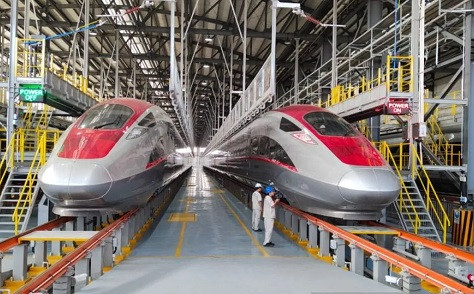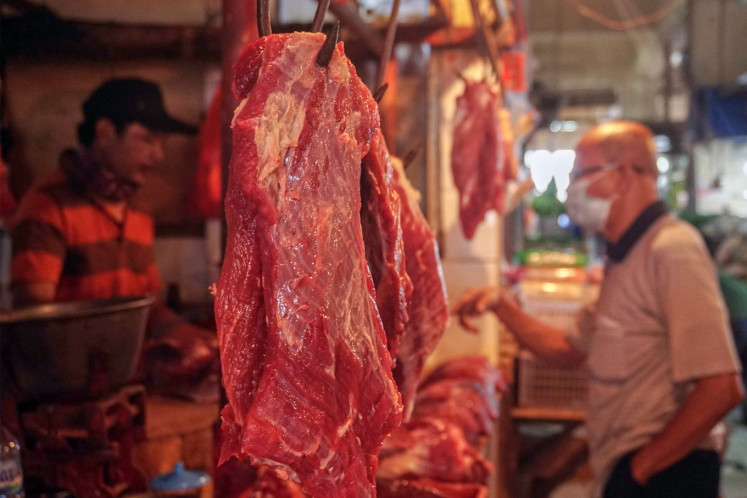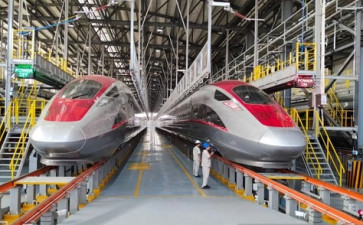Popular Reads
Top Results
Can't find what you're looking for?
View all search resultsPopular Reads
Top Results
Can't find what you're looking for?
View all search resultsStrategizing for operational excellence, sustainability of high-speed train
For KCIC, a comprehensive safety framework can not only ensure passenger well-being but also enhance its reputation, contributing to long-term financial sustainability.
Change text size
Gift Premium Articles
to Anyone
I
n today's fast-paced world, high-speed trains stand as symbols of efficiency and innovation in transportation. As the Kereta Cepat Indonesia China (KCIC) prepares to launch, there is a wealth of wisdom to be gained from established high-speed train operators around the world. By studying their strategies for profitability and business performance, KCIC can chart a course toward operational excellence that is both efficient and economically sustainable.
Government support and substantial investment in dedicated tracks by countries like Japan, France, and China have yielded strong financial returns. These investments have not only facilitated seamless operations but also generated economic activity and spurred local development. Aligning with government and private stakeholders for infrastructure investment and maintenance can set the stage for a thriving high-speed rail network that benefits both passengers and the economy.
Cutting-edge technology adoption is often a cornerstone of profitability. By incorporating innovations like automatic train control systems and predictive maintenance, high-speed operators enhance operational efficiency and minimize service disruptions. Utilization of advanced technologies can lead to reduced operational costs, excellence in safety and increased passenger trust.
Effective planning contributes to streamlined operations and optimized resource allocation. The Eurostar's coordinated scheduling across borders demonstrates how strategic planning can lead to profitability. High-speed train operators can replicate this approach by aligning schedules, routes and operational strategies, ensuring that resources are used efficiently to maximize revenues.
Putting passengers at the center of operations is a strategy embraced by Spain's AVE trains, which offer personalized services. Such an approach not only enhances passenger experience but also fosters customer loyalty, positively impacting revenues. KCIC can also cultivate a loyal customer base by offering tailored services and amenities that cater to the preferences of diverse travelers.
Investing in employee training pays dividends in terms of service quality and operational efficiency. Well-trained staff contribute to positive passenger experiences, leading to repeat business and referrals. KCIC can prioritize employee training to ensure a dedicated and efficient workforce, ultimately translating into better service delivery and improved business performance.
Profitability thrives when organizations embrace a culture of continuous improvement. Germany's Deutsche Bahn, with its commitment to refining services based on passenger feedback, exemplifies this approach. KCIC can establish mechanisms to gather passenger insights and use them to fine-tune operations, leading to enhanced customer satisfaction and increased ridership.


















